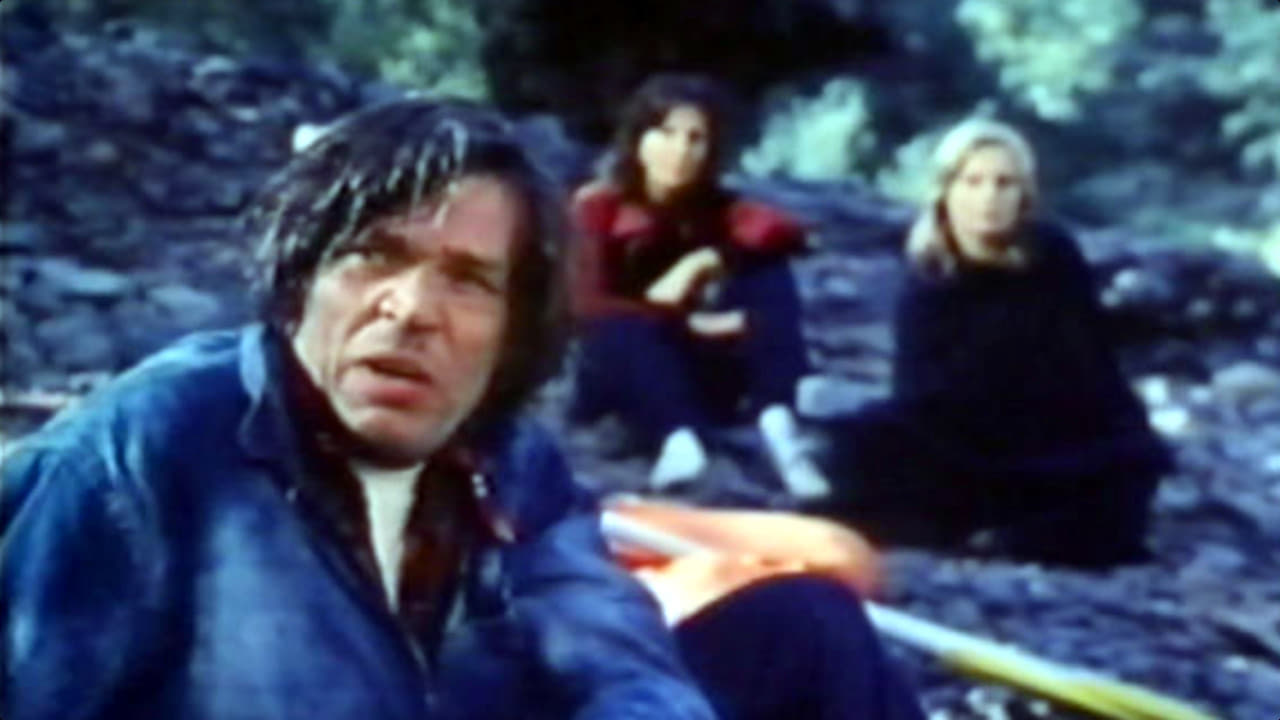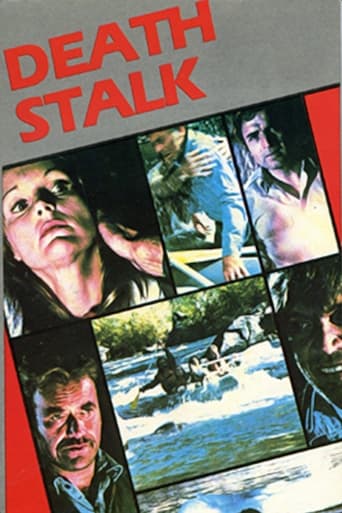Kodie Bird
True to its essence, the characters remain on the same line and manage to entertain the viewer, each highlighting their own distinctive qualities or touches.
rsoonsa
During the second half of the 20th century, a new classification of the thriller film genre emerged: "Whitewater Rafters Attacked by Escaped Convicts", and this made-for-television work is one of the better examples, a well-made item that relates of two couples who are captured by four prison escapees whose intentions toward them are clearly going to be unpleasant. Initially scheduled to be viewed during Thanksgiving week, the film was shifted to a less celebratory date due to its host network's perception that it contained immoderate violence and sexual innuendo. It will seem to be actually rather mild to audiences of later years, particularly when referential to John Boorman's 1972 film DELIVERANCE but, although it holds no candle to the Boorman feature, DEATH STALK yet turns out to be an efficiently paced melodrama. The rafting couples, Hugh & Cathy Webster (Robert Webber/Carol Lynley), and Jack & Pat Trahey (Vince Edwards/Anjanette Comer) are enjoying class IV whitewater rafting upon the challenging Tuolumne River in California's Sierra foothills, when they are boldly set upon, while camping, by four fugitives, performed by Vic Morrow, Neville Brand, Norman Fell and Larry Wilcox, who have escaped from a prison, or "rehabilitation center", as is mentioned with disdain by the group's leader, Brunner (Morrow). The two women are seized as hostages, and their husbands bound and left behind at their campsite. Rather than merely accept that their wives will soon be dead as mutton, Hugh, a businessman, and Jack, an attorney in his employ, pursue the outlaws in order to effect a rescue. The original scheduled run time for the picture's television viewing was 90 minutes but, blessedly, advertisements are not included for the VHS release, its 73 minute length helping to account for the conciseness of the storyline. Although several subplots are appended, they are not permitted to go unchecked, being adeptly dispatched by director Robert Day who sets a crisp pace from the film's initial frames. Shot upon a stretch of the Tuolumne River between Lumsden Bridge and Lumsden Camp, the film benefits from the fine natural clarity of outdoor lighting during daytime scenes. Morrow earns the acting honours here with his low key and generally subtle performance. In sum, this is a satisfactory filming of Thomas Chastain's typical neatly organized novel after which it is based. In addition to a wise decision to minimize superfluous subtext, the work offers a pleasing and somewhat ambiguous ending, making for a tidily crafted affair.

